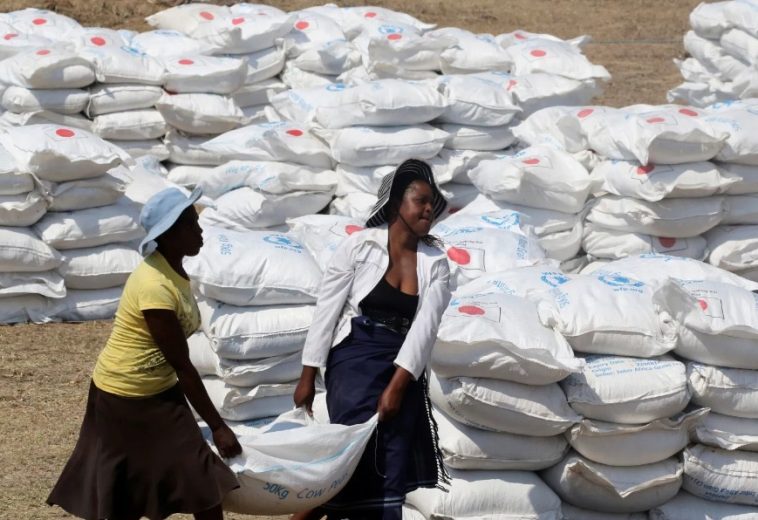In this article, the topic of anti-terrorism is explored, including political actions and strategies meant to stop terrorist acts. Often used interchangeably with anti-terrorism, counter-terrorism refers to the wide range of methods, military strategies, and tactics that are used by governments, corporations, law enforcement, and intelligence services to confront and eradicate the threat posed by anarchy. However, there is a question, Is Africa’s Counter-Terrorism Strategy Achieving Success?
Terrorism in Africa
With a lengthy history of terrorist attacks, Africa has just recently acknowledged the threat posed by cross-border terrorism. A progressive counterterrorism framework has been created by the African Union (AU), pushing state cooperation notwithstanding the delay of the reaction. Also, several governments are hesitant to embrace continental policy, which presents obstacles to its execution. The Sokoto Caliphate, Kanem-Bornu, Ghana, Mali, Songhai, and other ancient Egyptian empires are notable historical sites of terrorism.
African Union’s Counter-Terrorism Framework
The 1999 AU Convention and 2004 Protocol are two distinct units of the African Union’s (AU) extensive counterterrorism framework. The African Centre for the Study and Research on Terrorism (ACSRT) was founded in Algeria to centralise data and support capacity-building. In addition, the AU Peace and Security Council (AU PSC) oversees continental initiatives, and the ACSRT encourages communication between its member states. Furthermore, the African Union Assembly passed the African Model Law on Counter Terrorism in 2011 in an effort to help states’ laws become more uniform. In 2010, the AU nominated a Special Representative for Counter-Terrorism.
AU’s Peace and Council Decision
At a major conference held in Nairobi, Kenya, in September 2014, the African Union (AU) set goals for its member states and the AU Commission through the AU Peace and Security Council (PSC). PSC instructed the AU Commission to establish an annual AU Coordination Forum and a Counter Terrorism Fund in order to foster better cooperation. Under the framework of the African Standby Force, it also called for the creation of specialised sub-regional joint counterterrorism groups.
Through numerous measures sponsored by the AU, the Council has encouraged efforts to improve law, intelligence sharing, operational capability, and coordination. The African Mechanism for Police Collaboration (AFRIPOL) was established to improve interstate police collaboration, and it also assisted in the development of an African anti-terrorism model law. In order to operationalize the PSC, the Council declared its resolve.
Escalating Terrorist Threat in Africa
At the AU’s headquarters in Addis Ababa, major concerns have been expressed about the growing terrorist threat that is affecting 22 African countries. The growing spectrum of terrorist activities indicates weaknesses in the current counterterrorism policy, despite continuous attempts to combat terrorism by the AU and the Organisation of African Unity (OAU). The UNOAU actively assists the AU in carrying out decisions made by the AU PSC, works with pertinent UN organisations, oversees counterterrorism financing, which includes contributions from the Organisation of Islamic States, and works with the AU to establish efforts to resist radicalization.
In order to help the AU PSC operationalize its subcommittee on terrorism and sanctions, UNOAU also interacts with the UN Security Council sanctions committee. Additionally, the Nouakchott and Djibouti procedures, which frequently bring together intelligence heads to discuss security issues, are two sub-regional structures that UNOAU supports the AU in promoting.
Global Counter-Terrorism Measures
In cases where terrorism is a component of a larger insurgency, counterterrorism efforts may also involve counterinsurgencies. The “foreign internal defence” that the US Armed Forces perform helps other nations quell insurgencies. Following the 1972 Munich massacre, tactical units such as GSG 9 were formed as a result of the global expansion of counterterrorism units, which began with the Special Irish Branch.
After the September 11 attacks, in particular, the late 20th century saw a greater emphasis on counterterrorism, with Western nations placing a higher priority on cooperation, changing strategies, and putting preventive measures in place. While terrorism in rich nations receives more media attention, most acts of terrorism take place in less developed countries, and government responses can unintentionally have serious repercussions; the Munich tragedy is one example of this.
|
|
|
|
|
|
Themes of Anti-Terrorism
Counterterrorism strategies comprise four primary themes: prevention, which aims to stop people from becoming terrorists or supporting terrorism; pursuit, which concentrates on stopping terrorist attacks; protection, which involves strengthening defences against terrorist attacks; and preparation, which aims to lessen the effects of a terrorist attack. All of these concepts come together to provide a thorough framework that addresses and lessens the several facets of the terrorist threat.
African Leaders’ Strategies
African leaders have implemented various strategies to counter terrorism and safeguard their citizens from the threats posed by extremist groups. Here are key aspects of these anti-terrorism efforts:
Regional Cooperation:
African Union (AU): The AU plays a crucial role in fostering collaboration among African nations. Initiatives like the African Standby Force aim to enhance regional response capabilities to counter terrorist threats collectively.
Military Operations:
Multinational Joint Task Forces: Countries such as Nigeria, Niger, Chad, and Cameroon have formed joint task forces to conduct coordinated military operations against groups like Boko Haram. This collaborative approach strengthens the effectiveness of counter-terrorism measures.
Intelligence Sharing:
Intelligence Fusion Centres: Some African countries have established intelligence fusion centres where information is shared among nations to anticipate and respond to potential terrorist activities. This intelligence approach enhances early detection and prevention.
Community Engagement:
Community Policing and Awareness Programmes: Engaging local communities is critical. Many nations have implemented community-based policing strategies and awareness programmes to build trust, gather intelligence, and prevent radicalization at the grassroots level.
Counter-radicalization Programmes:
Educational Initiatives: Investing in education to counter radical ideologies is a prevalent strategy. Governments are working on curriculum development that promotes tolerance and inclusivity while countering extremist narratives.
Border Security Enhancement:
Securing Borders: Strengthening border controls and surveillance is a priority. This involves deploying technology, improving border infrastructure, and increasing cooperation between neighbouring countries to prevent the movement of terrorists.
Deradicalization and Rehabilitation:
Reintegration Programmes: Some nations focus on rehabilitating former militants through de-radicalization ograms. Providing opportunities for reintegration into society helps prevent a return to terrorism.
International Cooperation:
Partnerships with Global Allies: African nations collaborate with international partners, including Western countries and organisations like the United Nations and INTERPOL, to share resources, intelligence, and expertise in combating terrorism.
Legislation and Judicial Measures:
Anti-Terrorism Laws: Governments are enacting and enforcing stringent anti-terrorism laws to prosecute individuals involved in terrorist activities. This legal framework serves as a deterrent and enables the judicial system to handle terrorism-related cases.
Challenges and Progress
The 2002 African Union Plan of Action on the Prevention and Combating of Terrorism is one of the main instruments that the African Union (AU) used to increase its efforts in the fight against terrorism. This strategy addresses issues like border and police control, legislation, funding of terrorism, and information sharing, with a focus on strengthening member nations’ pledges and duties.
The AU went one step further in 2010 when it appointed a Special Representative for Counter-Terrorism Cooperation. The African Centre for the Study and Research on Terrorism (ACSRT) was founded to advance capacity-building, research, and analysis to promote AU counterterrorism objectives and foster international cooperation.
There are still issues that need to be resolved, like member-state differences in political will and financial limitations. Even though the AU has developed a thorough counterterrorism policy, its execution is beset by resource constraints and disparate national policies among its member nations.
To effectively counter the transnational danger of terrorism, the African Union must make sure that its institutions, the Peace and Security Council (PsC) and the African Community Security and Response Tribunal (ACSRT), in particular, function efficiently and have the resources to enable improved cooperation and impede terrorist actions within Africa.
The AU has designated a representative and established strategies for counterterrorism, and African leaders are collaborating and employing various strategies to combat terrorism as well. The African Union (AU) is essential, and nations are collaborating on military missions, exchanging intelligence, interacting with local populations, and other endeavours. Despite obstacles, advancement is occurring. However, to successfully combat terrorism and safeguard people in Africa, requires sustained dedication, funding, and coordinated regional operations.
Though a modicum of success has been achieved, a lot needs to be done to subdue terrorism, not just in Africa, but globally.


